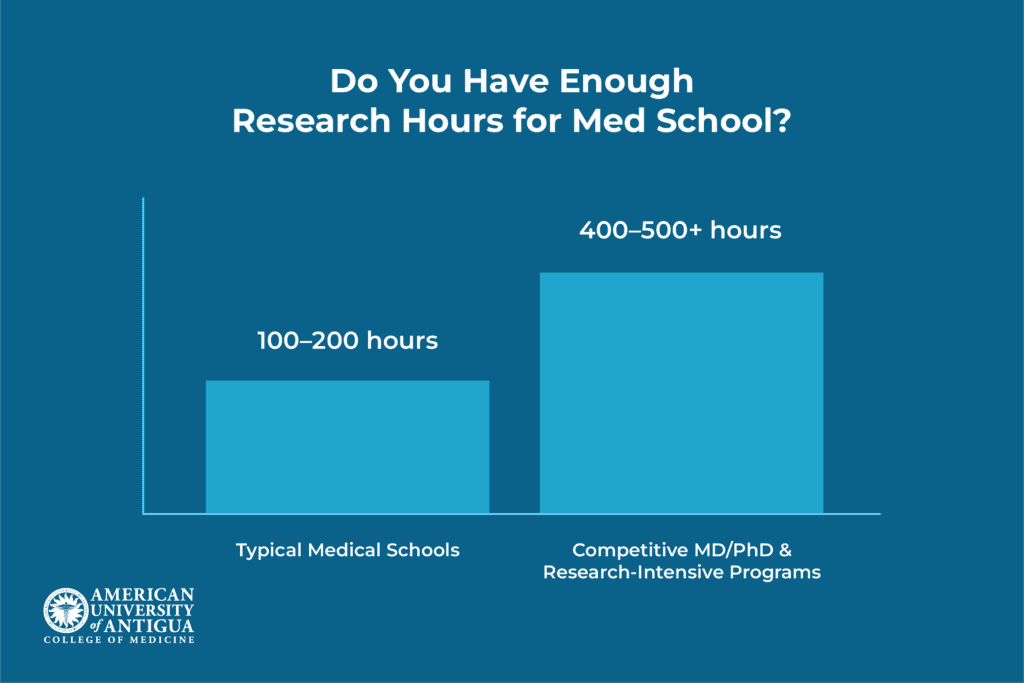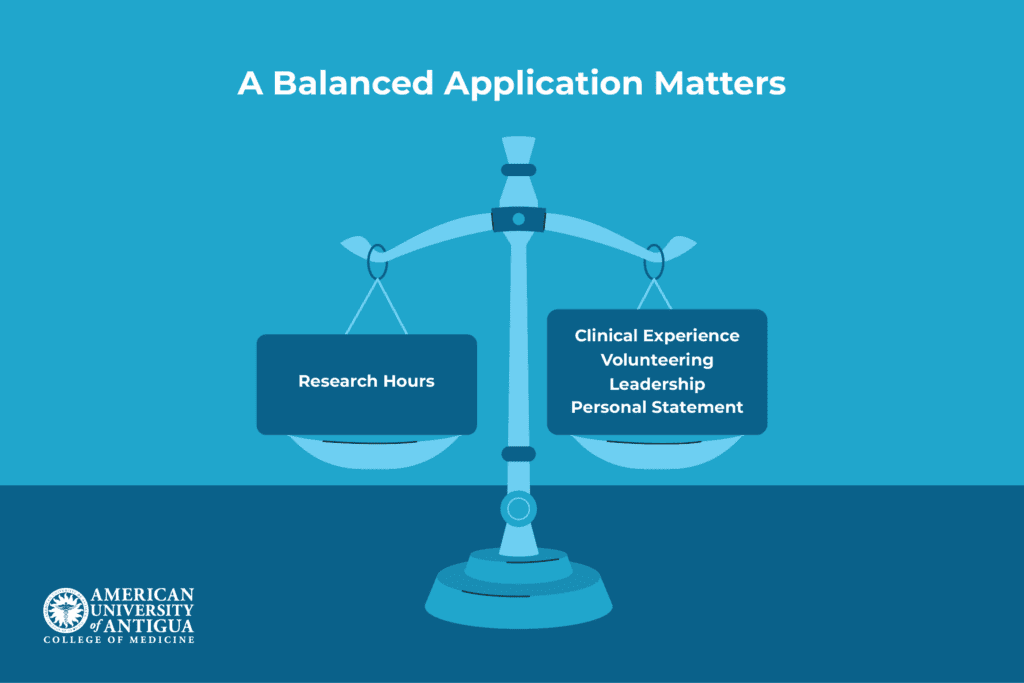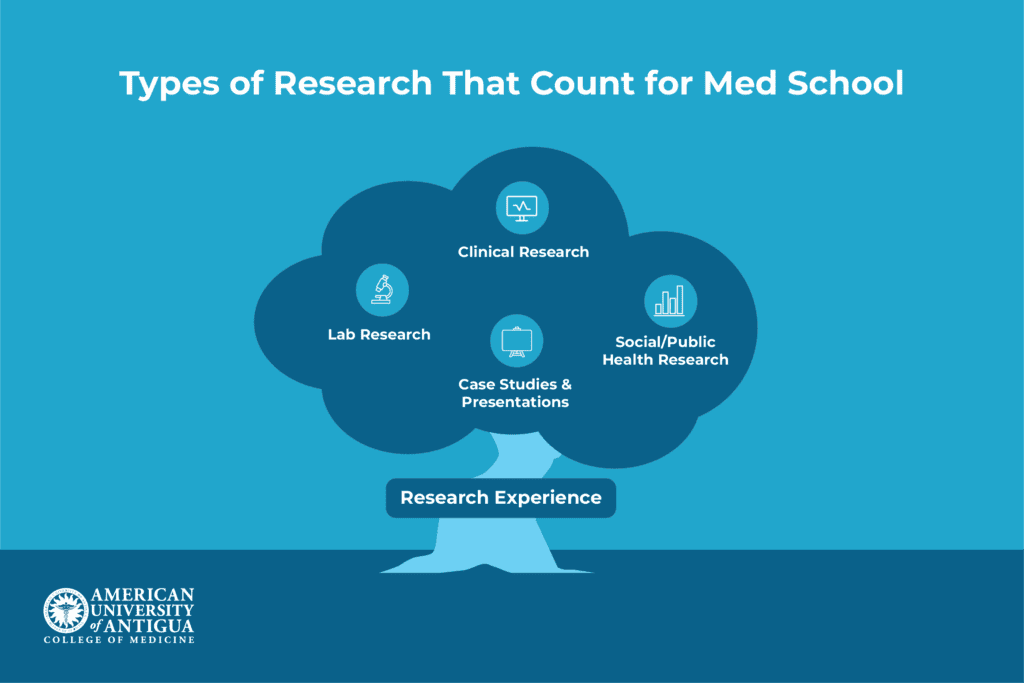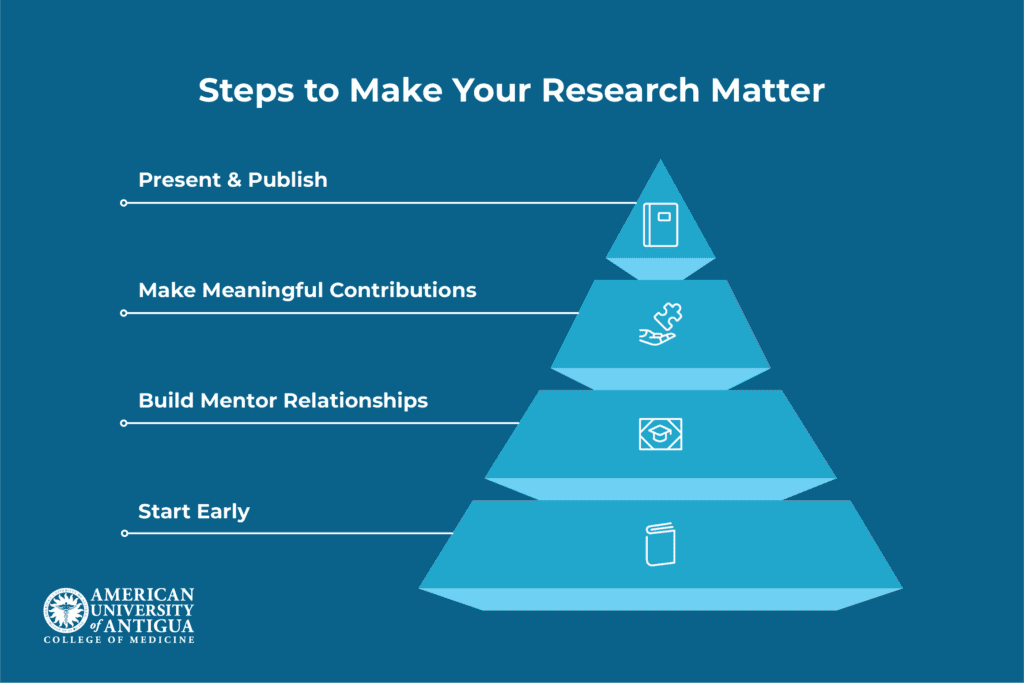How Many Research Hours You Need for Med School
Key Takeaways
- Research is important for competitive schools, but it’s not always necessary; most require around 100-200 hours, while top programs may look for 400-500 hours or more.
- If your research hours are limited, highlight volunteer activities, clinical experiences, leadership, and a strong personal statement.
- Smaller projects, as well as lab, clinical, social science, and public health research, are also valid and valuable.
- Start early, build mentor relationships, take on meaningful roles, and aim to present or publish your work.
Research experience isn’t required by every medical school, but it can be a powerful advantage — especially if you’re aiming for competitive, top-tier programs. Wondering how many research hours you really need to stand out? Understanding what schools expect and the different ways you can get involved can make all the difference in planning your journey.
In this post, we’ll discuss the many kinds of research you may pursue, provide guidance if you’re short on time, break down typical research hour ranges, and share recommendations to help you get the most out of your experience.
✅ Request information on AUA's MD program TODAY!
YOUR PATH TO SUCCESS BEGINS HERE
How Many Research Hours Do You Need?
Although the number of research hours required for medical school is not formally regulated, general expectations are influenced by the level of competition among the institutions. Most students can put together a solid application with 100 to 200 hours of research.

However, if you’re applying to highly competitive or research-focused programs — like MD/PhD tracks — you may need 400 to 500 hours or more to truly stand out. These higher numbers often come from being deeply involved in projects, such as helping with publications or presenting findings at conferences. Ultimately, the quality of your research experience matters just as much as the number of hours you put in.
What If You Have Fewer Hours?
If you haven’t done many research hours, don’t worry — you can still present a strong medical school application. Admissions committees evaluate your application as a whole, not just based on one aspect.

Focus on highlighting other important areas, like clinical experience, volunteering, leadership roles, and a compelling personal statement. Explain your genuine interest in becoming a doctor and show how your diverse experiences have prepared you for the field. These can all show your dedication to medicine in meaningful ways.
Types of Research That Count
There are several types of research that can strengthen your medical school application. Lab research, clinical research, social science or public health projects, and even case studies or poster presentations all count.

Each type offers a different way to develop critical thinking, gain exposure to the scientific process, and explore topics related to medicine. No matter which type you choose, what’s important is your level of involvement and what you learn from the experience.
Lab research
Lab research usually means working directly with scientific tools and materials in a lab setting, often called wet lab or bench work.
Lab research entails conducting experiments, collecting and analyzing data, and using the scientific method to study issues in disciplines like biology or chemistry. Many students work in university labs, take part in internships, or enroll in summer research programs to obtain this kind of experience.
For applicants to MD/PhD programs or research-focused universities, lab research is very beneficial as it demonstrates that you’re comfortable with scientific processes and motivated to learn more about challenging scientific subjects.
Clinical research
Clinical research looks at health and medical care in real-world settings, often focusing on patients, treatments, or health outcomes. Students who help with clinical research might collect data from medical records, review scientific articles, or assist with surveys and studies.
This type of research is closely tied to how doctors treat and care for patients, making it especially useful for anyone going into medicine. It helps you see how research can lead to better care and offers you experience with the clinical challenges doctors face in everyday practice.
Social science or public health research
Research in social science or public health focuses on broader aspects of healthcare, including patient behavior, health education, access to treatment, and the effects of social and economic variables on health.
This type of research often involves surveys, interviews, or analyzing population data. It’s especially valuable for students interested in health equity, community health, or public health careers.
Social science and public health research help future doctors understand the systemic issues that impact patient care and health outcomes by exploring how health systems operate and how various populations are affected.
Case studies or poster presentations
Even smaller-scale research activities, such as case studies or poster presentations, can significantly enhance your medical school application. Attending undergraduate conferences or research symposiums gives many students the opportunity to showcase their work and get experience presenting scientific topics.
These activities demonstrate your interest in conducting research and your ability to effectively present your findings, two attributes that medical schools highly value. Be sure to include any case studies or presentations in your application to demonstrate your commitment and effort.
Tips to Maximize Your Research Experience
To make the most of your research experience, it’s a good idea to start early in your undergraduate studies. Building strong connections with mentors can help guide you and open up more opportunities.

Focus on contributing meaningfully to your project rather than just finishing tasks. Also, try to share your findings by publishing them or presenting at conferences whenever you can. We’ll talk more about each of these tips in the next sections.
Start early in undergrad
It’s best to begin your research experience as early as possible, ideally by your sophomore year. Starting early gives you more time to develop the necessary skills and take on bigger, more meaningful roles in projects. It also opens up opportunities to build leadership experience in a lab or research team.
Many students participate in summer research programs — like SURF (Summer Undergraduate Research Fellowship) or REU (Research Experiences for Undergraduates) — to gain valuable hands-on experience and strengthen their resumes. Getting involved early sets a strong foundation for your future in medicine.
Build strong relationships with mentors
It’s important to find a faculty mentor whose research matches your interests so you can work on projects that excite you.
Keep in regular contact with your mentor by updating them on your progress and asking questions when needed. Take initiative by looking for ways to contribute more, and always be reliable by meeting deadlines and following through on tasks.
Building a strong relationship with your mentor helps you learn better and grow as a researcher. It also means they can write a compelling letter of recommendation for you, which can make a big difference when applying to medical school.
Aim for meaningful contributions
Try to get involved in more than just simple tasks like data entry or filing papers. Look for chances to take on complex roles, such as helping design experiments, analyzing the results, or being part of discussions about the project’s progress. It’s okay to ask your mentor or supervisor if you can take on additional responsibilities or learn new techniques.
Taking part in important parts of the project not only helps you grow but also gives you great material for interviews and personal statements. This shows medical schools that you made a real contribution and understand the research process.
Try to publish or present your work
Whenever possible, look for opportunities to present your research at local, regional, or national conferences. Sharing your work helps you develop communication skills and shows that you can explain your findings clearly and confidently.
Publishing your research, even as a co-author, is another valuable achievement that can really make your application stand out. It demonstrates that your work contributed to the scientific community and that you understand the full research process from start to finish.
Conclusion
While not required at every medical school, research experience can significantly strengthen your application — especially if you’re applying to competitive or research-focused programs. Whether you have 100 or 500 hours, what matters most is the quality of your involvement and how well you can explain what you’ve learned.
From lab work and clinical studies to public health projects, there are many ways to get involved. Even smaller efforts, such as poster presentations, can make a difference. By starting early, building strong relationships with mentors, and seeking opportunities to contribute meaningfully, you can make the most of your research journey.
Explore Research Opportunities at AUA
American University of Antigua College of Medicine (AUA) supports students in gaining valuable research experience through faculty-led projects, international partnerships, and hands-on learning opportunities. If you’re looking to strengthen your medical school application with meaningful research, AUA is a great place to explore.
Frequently Asked Questions
Do all medical schools require research experience?
No, not all medical schools require research experience.
Can I get into med school without research experience?
Yes, you can get into medical school without research experience by focusing on other strengths like clinical experience, volunteering, shadowing, and leadership
✅ Request information on AUA's MD program TODAY!